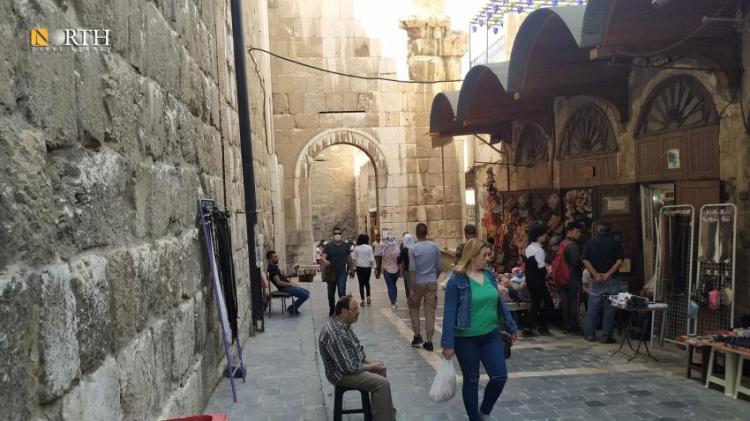Damascus – North-Press Agency
Residents of the Syrian capital Damascus believe that it was necessary to lift the curfew for reasons related to people's need to return to work, while stressing adherence to preventative measures and emphasizing on collective cooperation to avoid the "worst".
On Monday, the government team concerned with the procedures to tackle coronavirus in Damascus announced the lifting of the imposed night curfew completely, and on Tuesday they announced the lifting of the ban on travel between Syrian governorates.
News about more infections of coronavirus contributed to restoring fear and caution, which reflected on the daily habits of Syrians, as the Syrian Ministry of Health declared an increase in the number of cases, though all of them came from abroad.
On Tuesday, the number of infections reached 121, after recording 15 new cases with coronavirus among Syrians coming to the country, including nine coming from Kuwait, five from Sudan, and one from the UAE.
In a popular market in Mazzeh Jabal, Yasser Arabi, who works for a food distribution company, said that the decision to cancel curfew is necessary despite the consequences of the coronavirus, but the decision remains better because otherwise people would starve to death, indicating that residents are unable to meet their needs.
During Eid al-Fitr, Arabi made brief visits to his family, without large meetings, contrary to his custom, trying to avoid public places and shops that required him to stand in the crowd to buy his needs.
Shaker Hamdan, a sixty-year-old retiree, said that since the imposition of the ban, he reduced his movement except for the basic needs of the house, and was committed to protecting his family members from the virus, so he did not go out to meet relatives and neighbors on Eid.
Hamdan found no result in the decision to lift the ban taken by the committee concerned with the procedures to tackle the coronavirus because Syrians knew very well how to deal with the epidemic.
The decision of the government team included allowing mass transportation between governorates, and extending the opening period of shops and commercial markets from 8:00 a.m. to 7:00 p.m. during the summer.
As for Khaled Raawan, a 40-year-old father of three, he believes that there is a "need to be careful" after the partial ban was lifted.
He said that “adherence to preventative measures is everyone's responsibility, and there must be collective cooperation to avoid the worst; we should benefit from the experience of other countries."
Firas al-Obaid reduced his mixing with people on Eid, limiting it to congratulating relatives via messages and phone calls as well as greetings from a distance. After the lifting of the curfew, he was able to visit relatives and coordinate in order to avoid gatherings, because the obstacle of time was no longer present. He supports lifting the ban because he finds sitting at home “an illness worse than coronavirus.”
The government team stressed the continued prohibition of social events, weddings, and condolences, and the continued closure of public parks, sports clubs, swimming pools, cultural centers, theaters, and private institutes, as well as tourist facilities, restaurants, and cafes.
However, a review of the situation of the epidemic will be carried out next week to make an appropriate decision regarding tourism facilities and other sectors depending on variables, and priority was given to the "disruption allowance" for workers in tourist facilities.

